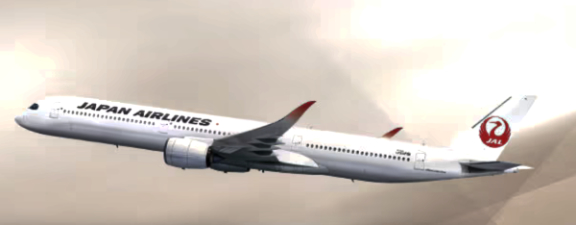
Intelsat has been selected by Japan Airlines to provide multi-orbit, inflight connectivity (IFC) service on more than 20 Boeing 737 MAX aircraft to be delivered in the coming years.

The airline will become one of the first in the Asia-Pacific (APAC) region to offer reliable, multi-orbit service using Intelsat’s new electronically steered array (ESA) antenna (pictured below, courtesy of Intelsat).

The new service will be installed by Boeing in the factory, making JAL one of the first airlines to take delivery of a Boeing aircraft with ESA inflight service ready for immediate passenger use. The first linefit aircraft is expected to be delivered in 2026.
The Intelsat ESA is less than seven centimeters tall and interoperates on both Intelsat’s family of geo-stationary satellites and its partner’s constellation of LEO satellites.
In addition to JAL’s Boeing 737s and 767s flying with 2Ku service, JAL’s subsidiary airline, J-AIR Co., Ltd.. is currently installing Intelsat’s 2Ku system on the carrier’s fleet of Embraer E190 aircraft. As recently announced, J-AIR will complete installation of the 2Ku system on 14 E190s in the coming months. When completed, J-AIR will be the first regional airline in Japan to offer inflight entertainment and connectivity services.
“Japan Airlines’ passengers will soon benefit from multi-orbit connectivity that will provide the same fast and dependable internet access they enjoy at home, thanks to wide coverage and low latency,” said Dave Bijur, Senior Vice President for Commercial Aviation. “JAL was Intelsat’s first non-U.S. commercial aviation customer, and we look forward to continuing to support JAL’s market-leading inflight connectivity service in Japan where their guests enjoy free service.”
“Intelsat has been a trusted partner of JAL since 2013,” said Junko Sakihara, Deputy SVP, Customer Experience Division at Japan Airlines. “We are proud to have been among the first airlines in the world to offer free service for all passengers flying on our domestic routes starting in 2017 and look forward to the greater speed and reliability benefits the new multi-orbit service will bring to our customers.”
